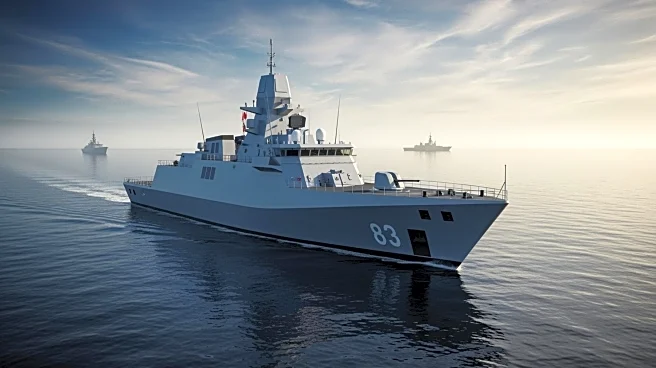What's Happening?
The European Union is working to enhance its enforcement capabilities against Russian shadow fleet vessels, as outlined in a recent document. The EU's diplomatic arm, the EEAS, has initiated discussions
to reinforce the International Law of the Sea framework, aiming to allow member states to board these vessels more effectively. This move follows incidents involving shadow fleet ships, such as the boarding of the oil tanker Boracay by French soldiers, which was suspected of being part of Russia's shadow fleet. These vessels pose risks to critical infrastructure and are believed to be used for hybrid attacks, including reconnaissance and disruption of civilian airports. The EU plans to finalize a draft declaration by the end of November, seeking member states' support to negotiate bilateral agreements for pre-authorized boardings.
Why It's Important?
The EU's initiative to strengthen its maritime enforcement powers is significant in the context of ongoing geopolitical tensions with Russia. The shadow fleet is suspected of facilitating hybrid warfare tactics, which could threaten the security of EU member states. By enhancing its ability to inspect these vessels, the EU aims to mitigate potential threats to critical infrastructure and civilian safety. This move could also set a precedent for international maritime law enforcement, potentially influencing global maritime security policies. The outcome of these negotiations could impact EU-Russia relations and the broader geopolitical landscape.
What's Next?
The EU's next steps involve securing the support of its member states for the draft declaration and obtaining authorization to negotiate bilateral agreements with flag states. If successful, this could lead to more robust enforcement actions against the shadow fleet. The EU's top diplomat, Kaja Kallas, will play a key role in these negotiations. The response from Russia and other international stakeholders will be crucial in determining the effectiveness and acceptance of these measures. The situation will require careful diplomatic navigation to avoid escalating tensions while ensuring regional security.










